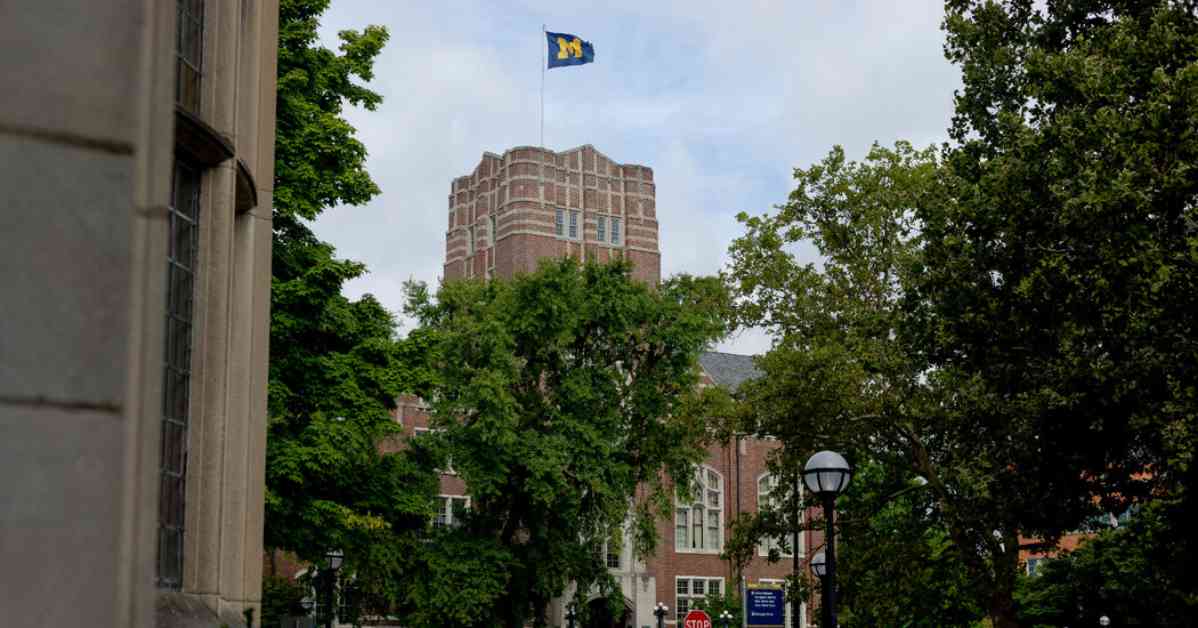At the University of Michigan, a wave of student activism has disrupted the operations of the student government, leading to a standoff that has left many student groups in limbo. Pro-Palestinian protesters, who won control of the student government in the last election, have taken a hardline stance by refusing to fund campus groups unless their divestment demands are met. This unprecedented move has caused a ripple effect, impacting a wide range of student activities and creating tension on campus.
The Student Government Standoff
The Central Student Government (CSG) at the University of Michigan is responsible for allocating approximately $1.3 million annually to around 400 student groups. However, the latest council elections saw pro-Palestinian activists from the Shut It Down party seize control of the student government. Their immediate decision to withhold funding for all activities until the university commits to divesting from companies profiting from Israel’s actions in Gaza has thrown the campus into disarray.
The student government takeover by pro-Palestinian activists marks a significant shift in tactics for the movement on campus. While they have previously clashed with the administration over issues like dismantling encampments and disciplining protesters, this move to control the student government represents a new strategy to push their demands for divestment.
The Impact on Student Groups
The consequences of the funding standoff are being keenly felt by student groups across campus. The men’s Ultimate Frisbee team is one of the many groups left in a precarious position due to the lack of financial support. Without funding, they are unable to compete, severely hampering their ability to participate in the sport they love.
Similarly, the ballroom dance team, led by president Nicolette Kleinhoffer, is struggling to maintain its activities without the financial backing from the student government. The team relies on funding for competitions, coaching, and rehearsal space, all of which are now in jeopardy due to the funding freeze imposed by the pro-Palestinian activists.
The airport shuttle service, which saw a significant increase in costs without a campus subsidy, is another casualty of the funding standoff. Students who rely on this service to travel to and from the airport are facing higher expenses, adding to the financial strain many are already experiencing.
The Strain on Campus Life
As students return to school, the campus atmosphere is tense, with many feeling the effects of the funding standoff. The uncertainty surrounding the future of student activities has created a sense of unease and frustration among the student body. With essential services like transportation and recreational activities at risk, students are left wondering how they will navigate campus life without the support they once relied on.
University regents have made it clear that divestment is not on the table, setting the stage for a prolonged standoff between the student government and the administration. This impasse has left both sides digging in their heels, with no clear resolution in sight. The refusal to compromise on either side has only served to deepen the divide, leaving students caught in the middle of a political struggle that has spilled over into campus life.
In the midst of this turmoil, student activists continue to push for their demands, determined to see their goals realized. Their commitment to the cause is unwavering, despite the challenges and obstacles they face. The student government takeover may be a bold move, but it reflects the passion and determination of a generation of students who refuse to stay silent in the face of injustice.
As the standoff between pro-Palestinian activists and the university administration continues, the future of student activities at the University of Michigan remains uncertain. The consequences of this funding impasse are far-reaching, impacting not only specific student groups but also the wider campus community. The stakes are high, and the pressure is mounting as students grapple with the fallout from this unprecedented situation.




















